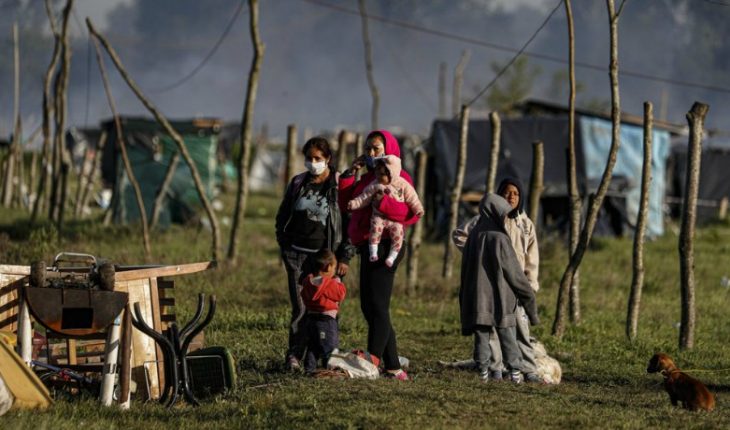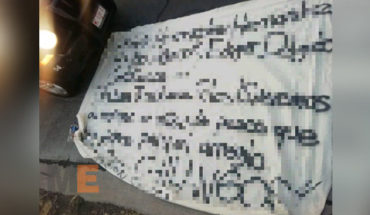Police on Thursday evicted a property that was occupied by hundreds of families amid the pandemic of the new coronavirus and which became a symbol of housing deficit and poverty in Argentina.About 40 people were arrested and several police officers were injured during the eviction of the land located in the town of Guernica, about 40 kilometers south of Buenos Aires , which has been a focus of public attention since its occupation in July, during the southern winter and when economic and social decline sharpened. Police officers faced a group of occupants who after being forced to leave the site threw stones and other objects at officers from an adjacent area. After the incidents several occupants threatened to return to the land of about 100 hectares, which was fenced off by the police. The Minister of Government of the Province of Buenos Aires, Teresa García, said that she appealed to “all possible avenues” to develop a peaceful eviction and was surprised by the “uncompromising attitude” of several families. Security forces entered the site in the early morning after negotiations between the authorities of the province of Buenos Aires and the occupiers failed and after the rejection of justice to a new request for an extension to be abandoned of their own free will. Previously, the authorities reached an agreement with more than 700 families to withdraw from the premises. In return they received building materials, food, hygiene products and, for those who had nowhere to go, the possibility of moving to paradors on a transitional basis. After the arrival of the police in the operation led by the Minister of Security of the province of Buenos Aires, Sergio Berni, a group of people resisted leaving. The troops knocked down the precarious installed homes in their wake. The occupants lived in wooden, cardboard and veneer boxes or in shops made of waste bags that were distributed in wire-fenced lots. While the eviction took place, militants from social organizations demonstrated at various points in and around Buenos Aires under the slogan “Earth to Live” and humanitarian and political entities disapproved of the police operation. The Center for Legal and Social Studies noted that “the eviction of the takeover of Guernica covers the real problem to which they did not give solution”. For its part, the Argentine Episcopal Conference stated that it “does not endorse the shots” because “they are occasions for violence and social upheache, often incentivized”, but noted that this phenomenon shows “the precarious situation” of many families.” As Christians we feel challenged by any form of exclusion that leaves men and women without a decent roof,” the bishops said. Illegal land-taking is a recurring event in Argentina that escalated whenever the country is hit by an economic crisis. The lands occupied by some 1,900 people from Guernica and nearby municipalities were claimed by their owners to justice and triggered a public debate on private property and the chronic housing deficit in the country. Behind the occupation, judicial officials detected illegal maneuvers by several people who would have put usurped lots up for sale. Although the government of Peronist President Alberto Fernández has increased attendance for those most in need, aid does not appear to be sufficient in the face of poverty affecting 40% of the population. Pandemic quarantine aggravated an economy that had been falling for more than two years and increased social unrest. In recent weeks the shots multiplied mainly in the province of Buenos Aires, the most populous and largest in the country, and in Rio Negro, in Patagonia, which led national and provincial officials to enter into negotiations with the occupiers. Shortly after the eviction of Guernica, in the province of Entre Ríos – eastern Argentina – justice ordered the eviction of a rural establishment belonging to former Minister of Agriculture Luis Miguel Etchevehere and several of his relatives. The place is occupied by Dolores Etchevehere, sister of the former civilist, and by social activists who collaborate with her on an agroecological project. Juan Grabois, a lawyer for women and one of the benchmarks of that project and the Central Workers of the People’s Economy, announced that the occupants of the property will abide by the judicial decision, even if they disagree, and that he recommended that his defendant do the same. According to Grabois, the Etchevhere imposed the thee on a “pusillanimous state that is never encouraged by the elites, but which does not hesitate in reprhyming the poor” and in that sense warned that it was no coincidence that a “violent eviction” took place in Guernica.
translated from Spanish: Argentina: police evicted hundreds of families from busy property since the start of the pandemic
October 29, 2020 |





